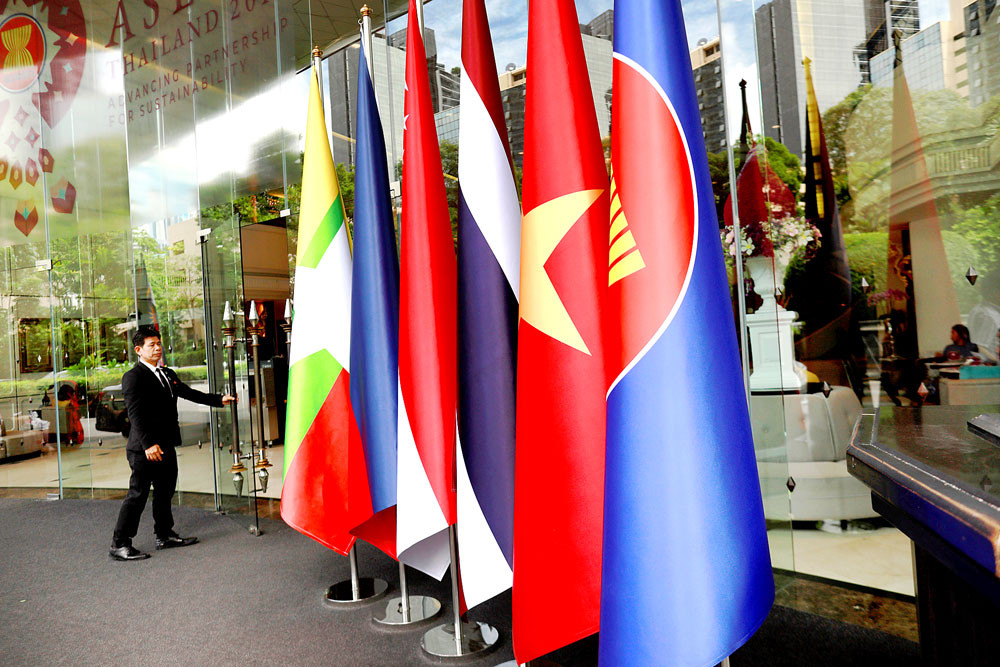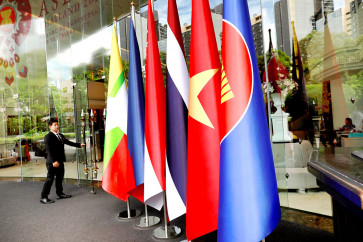Popular Reads
Top Results
Can't find what you're looking for?
View all search resultsPopular Reads
Top Results
Can't find what you're looking for?
View all search resultsThawing out Cold War declaration, ASEAN sets stance in great powers rivalry
Top ASEAN diplomats reiterated the region’s neutrality on ASEAN Day on Sunday, citing a declaration made during the Cold War and warning that rising geopolitical tensions could bring “detrimental ramifications” to the region.
Change text size
Gift Premium Articles
to Anyone
T
op ASEAN diplomats reiterated the region’s neutrality in a statement on ASEAN Day on Sunday, citing a declaration made during the Cold War and warning that rising geopolitical tensions could bring “detrimental ramifications” to the region.
While it did not mention the United States or China, the statement appeared to be addressed to the two powers, whose rivalry has become increasingly tense and has had political and economic consequences in Southeast Asia, coinciding with the COVID-19 pandemic.
The ASEAN statement, issued at the request of Indonesia, reaffirmed “the importance of upholding the purposes and principles of the Treaty of Amity and Cooperation in Southeast Asia [TAC], the Zone of Peace, Freedom and Neutrality [ZOPFAN] Declaration and the Declaration of the East Asia Summit on the Principles for Mutually Beneficial Relations".
Indonesian Foreign Minister Retno LP Marsudi has been communicating with her ASEAN counterparts about the geopolitical developments in the region since late July, according to her office, and was responsible for raising the ZOPFAN and TAC principles.
ZOPFAN is a Cold War-era ASEAN document that was signed by the association’s five original members – Indonesia, Malaysia, the Philippines, Singapore and Thailand – in 1971. Nations that have joined the body subsequently have acceded to the agreement automatically. The agreement sought, with delayed success, to remove US and Soviet military bases from the region.
The TAC is a peace treaty that aims to promote regional security and stability among member states and ASEAN partners. It was signed by the leaders of the original member states in 1976, followed by later members. ASEAN partners began signing the treaty in 2003, with China and India being the first to do so. The US signed it in 2009.
Retno brought up the two documents while addressing the increasing tensions in the region in a virtual bilateral meeting with Chinese State Councilor and Foreign Minister Wang Yi on July 30.















